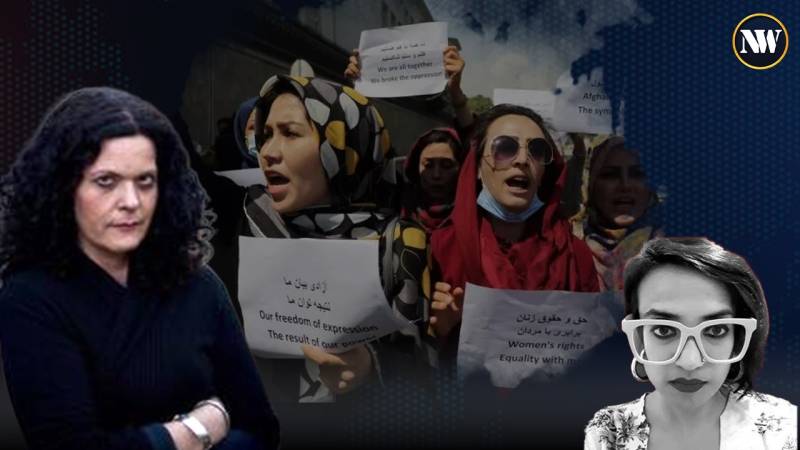As the world marks the two-year anniversary of the Taliban's takeover of Kabul, the harrowing reality faced by women and girls in Afghanistan under their regime remains a stark reminder of the challenges to human rights in the 21st century. In a recent interview, Heather Barr, the Associate Director of the Women's Rights Division at Human Rights Watch, offered a chilling account of the dire situation, shedding light on the alarming rollbacks in women's rights and freedoms that have unfolded over this period.
The Taliban's rule has imposed a suffocating grip on Afghan society, particularly affecting women and girls. Heather Barr elucidates that the regime's actions have warranted the United Nations' classification of its treatment of women, girls, ethnic, and religious minorities as a form of gender apartheid. The gravity of this designation cannot be overstated; it underscores the systematic and deliberate suppression of fundamental rights based on gender, a violation of the most basic principles of human dignity.
One of the most concerning aspects of the Taliban's rule has been the curtailment of education for women and girls. In a swift and brutal move, the Taliban banned secondary education for girls, followed by a complete prohibition on higher education for women. This educational regression threatens to perpetuate cycles of poverty and ignorance, robbing Afghan women of their potential to contribute meaningfully to society and their own well-being.
Beyond education, the Taliban's policy of restricting women's employment has plunged countless families into economic despair. Women were abruptly barred from government and civil service roles, as well as positions with international non-governmental organizations (NGOs). Even the previously tolerated employment in beauty salons was eradicated. The shuttering of beauty salons, seemingly insignificant to some, translates to a loss of livelihood for thousands of Afghan women, many of whom were the sole breadwinners for their families. Moreover, this move highlights the Taliban's growing encroachment on private-sector employment for women, raising concerns that their ultimate objective is to confine women to the domestic sphere.
The humanitarian crisis in Afghanistan has been exacerbated by the Taliban's policies, as Barr explains. International donors withdrawing aid after the Taliban's takeover initially triggered the crisis, which was then compounded by the regime's actions. Pushing women out of jobs has driven female-headed households further into poverty. Disturbingly, the Taliban's prohibition on women serving as aid workers has hindered the distribution of essential resources. Women and girls, who are often the most vulnerable in times of crisis, suffer disproportionately due to this lack of access to aid.
Heather Barr's analysis emphasizes that accountability is paramount in addressing these violations of human rights. The International Criminal Court's investigation into Afghanistan's human rights situation, which has been ongoing since 2006, holds the potential for substantial consequences. While progress has been slow, recent developments suggest the possibility of criminal charges against Taliban leaders. This prospect offers a glimmer of hope for Afghan women who have endured years of oppression.
The interview also draws attention to the remarkable bravery displayed by Afghan women's rights activists. Despite facing extreme risks, these activists, both women, and men, have continued to challenge the Taliban's oppressive regime. Their resilience is evident in their unwavering demands for basic rights like education, work, and freedom. Their actions have prevented the world from turning a blind eye to Afghanistan's ongoing crisis.
While the international response to Afghanistan's plight has been inadequate, the voices of these activists have prevented complete oblivion. It is critical for the international community to recognize the significance of these demands and support Afghan women's struggle for their rightful place in society. The progress of gender equality and human rights is non-negotiable and should remain a top priority for diplomatic and humanitarian efforts.

